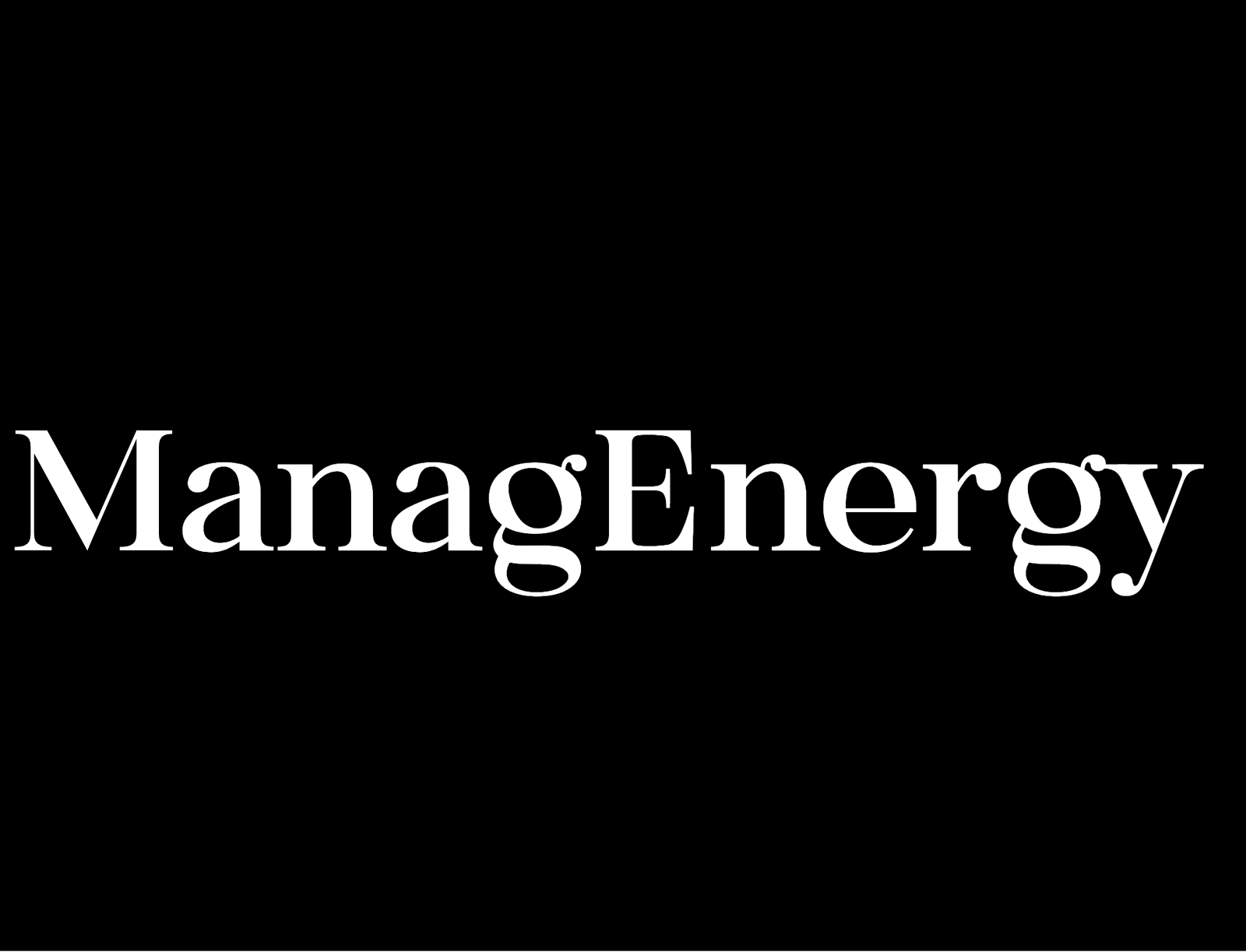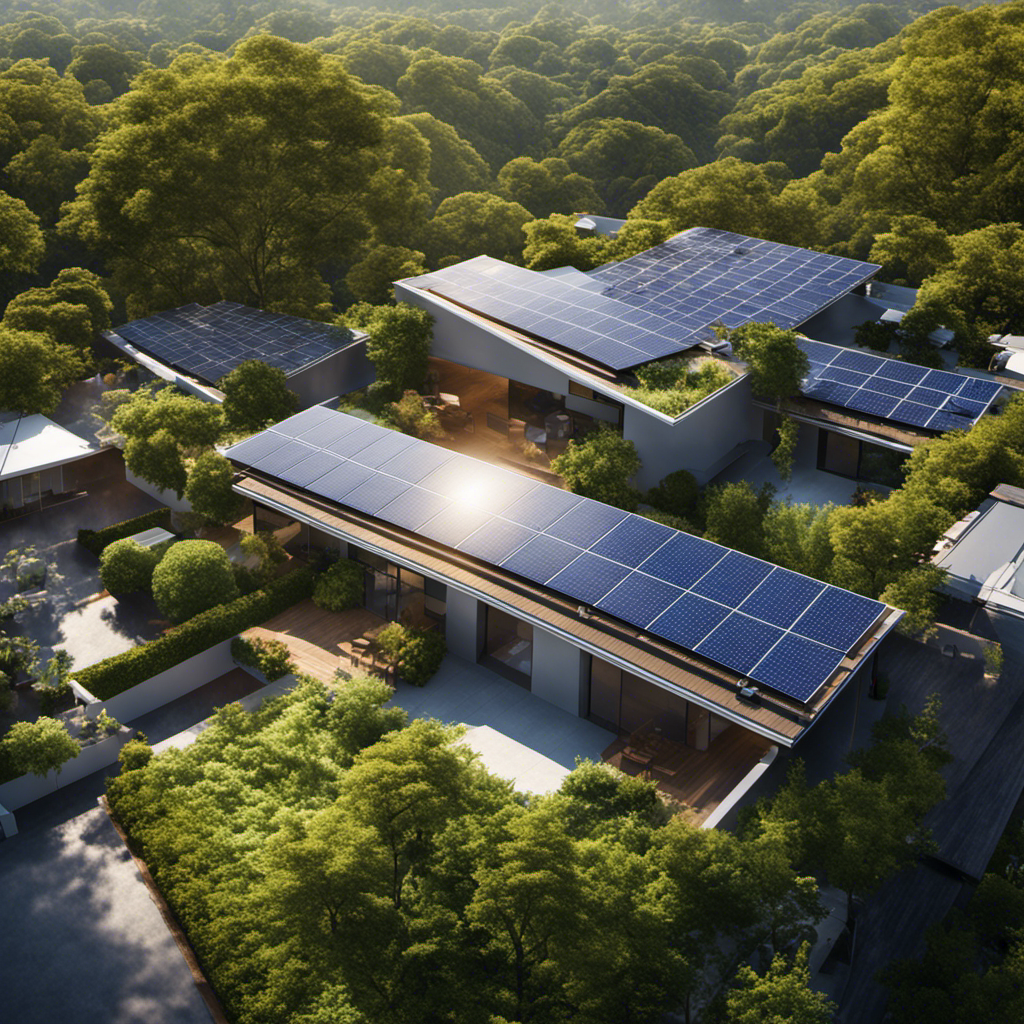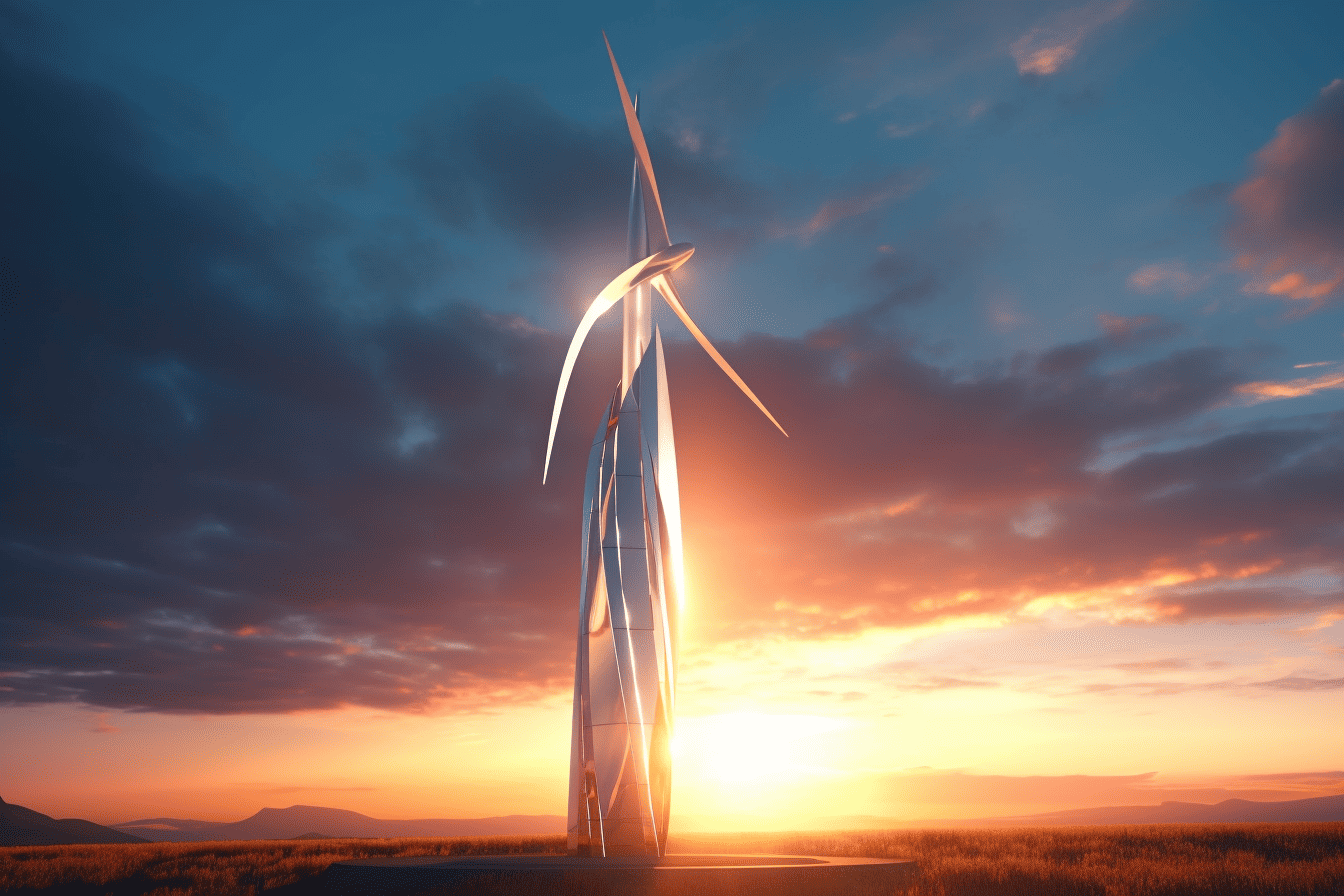Solar
Solar Leases – How to Get a Solar Lease and Own the Panels at the End
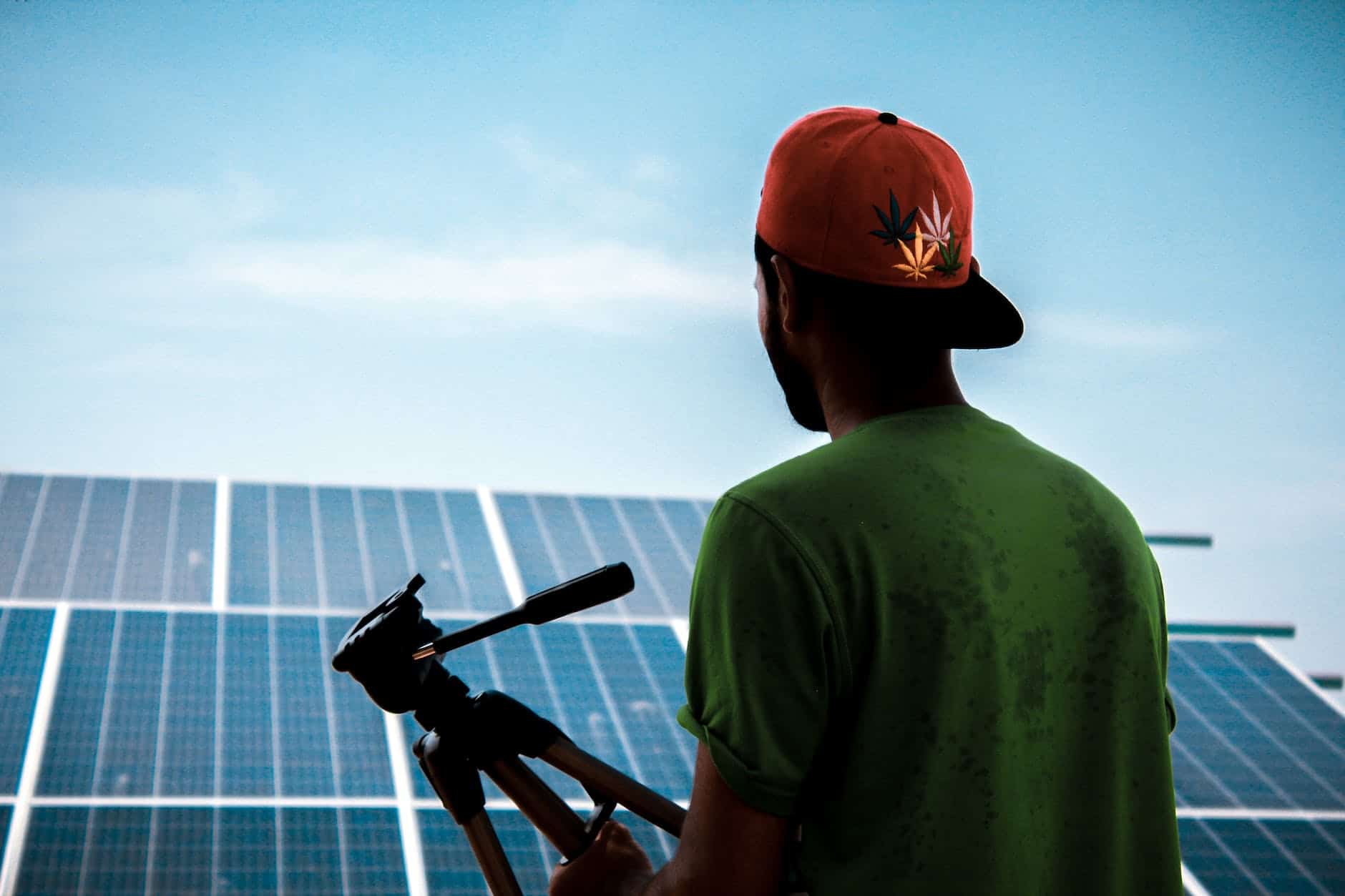
Opting for a solar lease is an excellent strategy to lower your energy expenses. With this kind of agreement, you’ll be responsible for the monthly payments and eventually gain ownership of the panels.
Paying for A Solar System
The cost of leasing solar panels varies depending on the type of company and where the system is located. In some states, you can get federal tax credits for leasing solar panels. If you have a home in these areas, a lease could be a worthwhile option.
A solar lease requires a monthly lease payment to the installer. The payment is typically much less than the current utility bill. The benefits of solar leasing include environmental advantages, increased independence from the power grid, and lower energy costs.
Solar leases are also great for individuals with limited income. However, they can be tricky to deal with. They can be difficult to transfer to a new homeowner, and they can make selling a home more difficult.
Another drawback is that the lease contract is not easily transferable. To break a lease, you must pay the balance in full before moving out. Some buyers may be reluctant to take over a lease, and they might prefer to purchase the home outright.
It is important to think about the costs and benefits before deciding whether or not to rent a solar panel system. You need to consider the amount of money you will save, the length of the lease, and what your credit score is.
While a lease is a good financial tool for those with limited income, the long-term savings will be less than if you buy the panels. Also, a solar lease does not allow you to claim a 26% federal solar tax credit.
Many states offer local tax incentives for leasing solar panels. You will need to contact your state’s local government to determine if your area offers incentives.
If you choose to lease, you should be aware of the escalator clause. This enables the payments to increase annually. An escalator clause can mean that you are paying more for your energy than you should.
If you are considering a lease, you should look for a reputable company. If you have good credit, a company may even be willing to prepay the lease to help reduce the upfront costs.
Getting a Loan
Solar leases can help you reduce your power bill. They also help protect the environment. However, you’ll want to know what kind of loan is right for you before taking out a solar lease.
Loans are available for solar panels, but you’ll need to have a good credit score to qualify. These loans are similar to other types of loans offered by banks. There are several options you can choose from, including FHA financing.

Another option is to use a home equity line of credit. Home equity lines of credit work like a lower interest credit card. This allows you to tap into the equity in your home and use it to pay for a solar system. The interest is tax-deductible, and the rates are low.
When you take out a solar loan, you’re making a commitment to pay back the amount you owe along with the interest. If you’re unable to make your payments, the lender will repossess your home.
Other types of solar payment agreements are solar leases and solar PPAs. Typically, a solar lease will last about 20 years. While leasing is more affordable than buying a solar panel system, you’ll need to make regular monthly payments.
Homeowners can also obtain a loan for their solar panel system from a third-party lender. Although lenders have the right to charge higher interest on solar leases, they aren’t typically required to.
Homeowners can also take out a home equity loan to finance a solar panel system. This type of loan works the same way as a second mortgage. You’ll borrow against the value of your home, and you can borrow up to 85% of the value. A home equity loan is also a viable choice if you have bad credit.
Depending on the state in which you live, you may be able to lease a solar panel system. Many states allow you to do this. Your lease will include annual rate increases, and you won’t own the system.
Whether you opt to get a solar lease or a loan, you should consider your budget and the tax benefits. Remember, it’s a big decision and a big investment.
Taking Over the Monthly Payments
Solar leasing is a great way to enjoy solar power without the up front cash. Many solar leases include a payment escalator, which will give you an idea of how much your electricity costs. If the cost escalator is too high, you could end up paying more for your lease than you would have otherwise.
A solar lease is one of four types of solar financing. Other options include loans, private loans, and PACE (PACE financing) financing. Buying a solar system is also an option. The best solar system for you will depend on your budget and needs. You can choose from various packages and brands.
Solar leases are ideal for homeowners with a limited budget. It also allows them to take advantage of tax credits. However, they may be a pain to sell your house once the lease is over.
Leasing companies will usually design a solar system to their specifications. This includes placing the panels in the most visible places. They also make sure that you’re informed of maintenance needs and repair opportunities.
Some solar companies offer free smartphone and tablet monitoring programs. These services provide an easy way to keep track of your system’s performance. As a result, you will not be surprised if you have to pay for repairs.
In addition to its numerous other benefits, a solar lease can help you save money. For example, if your solar company offers net metering, you will be credited for any energy that you add to the grid.
Leasing companies can also offer you relocation services. In this case, you will have to go through a process of approval from your local landmarks commission and your utility. Depending on the size of your system, it can cost you a few hundred dollars to move the panels.
Whether you decide to purchase or lease a solar system, it is important to compare the merits of each. Taking the time to compare your options will ensure that you’re getting the most value for your money.
While solar leasing is a good option for some, it is not for everyone. Whether you’re moving, looking to cut back on your electricity bills, or just don’t want the hassle of owning a solar system, you can take your pick from among the three main lease choices.
Owning the Panels at The End
It is possible to own the panels at the end of a solar lease, but there are some considerations to take into account. There are three options at the end of a lease: purchase the system, buy out the lease or terminate the lease.
Owning the panels at the end of a solar leasing program is a good option for financially stable homeowners. The cost of owning is usually small compared to the monthly savings and benefits of owning a solar panel system. However, it can be difficult to sell a home if the owner has a leased system.
To own the panels at the end of a lease, the buyer must meet onerous credit requirements. They must have a FICO score of 700 or higher. If the buyer fails to meet these requirements, they can be repossessed.
The financial burdens of buying out the lease may be too much for some buyers. Many leases are long-term contracts, ranging from 15 to 25 years.
Buying out the lease will also require the new buyer to have excellent credit. This is important, as the lease contract will not be transferable to the buyer. Also, the seller must pay the remaining balance of the lease. Some sellers will want to avoid paying these large sums.
Other concerns include the escalator clauses in many leases. These clauses increase payments every year for the remaining term. For example, 12 cents per kilowatt-hour becomes 18.2 cents per kilowatt-hour in the 15th year of the lease.
Solar leases are also complicated to transfer to the buyer. In most cases, the seller must assume the lease when the buyer purchases the home. Depending on the age of the inverter and solar panels, the house may need to be remodeled to accommodate the older system.
Owning the panels at the end can help you save money on your utility bills and reduce your environmental footprint. But it will take some careful analysis to decide if you should go this route. Consider all of the factors above and the advice of a professional before making a decision.
Solar
Solar Panels: Environmental Impact and Recycling Solutions

As someone who supports renewable energy, I was fascinated by the environmental effects of solar panels.
It’s crucial to acknowledge that while solar power is a sustainable solution, it is not without its drawbacks.
Large-scale solar projects can lead to land clearing, habitat loss, and disruptions in rainfall patterns.
Additionally, the production and disposal of panels involve hazardous chemicals that can contaminate groundwater.
The recycling process, although costly, holds promise for mitigating these effects.
In this article, we will explore the environmental impact of solar panels and potential solutions through improved recycling technology.
Key Takeaways
- Solar power projects can have negative environmental impacts such as soil compaction, habitat loss, and water stress.
- Solar panels emit less carbon dioxide compared to other energy sources, but some emit potent greenhouse gases during production.
- Hazardous chemicals used in solar panels can leach into the environment and pose risks to humans and ecosystems.
- Recycling solar panels is costly but technology has improved, with the ability to recycle most materials and reuse panels.
Land Clearing and Habitat Loss
I am concerned about the environmental impact of solar panels, particularly the land clearing and habitat loss caused by large-scale solar power projects. Mitigation strategies and conservation efforts are essential to minimize these impacts.
To address land clearing, we can choose sites for solar panels that do not share land with agricultural uses. This approach reduces the need for clearing and grading, which can alter drainage channels and increase runoff. Implementing engineering options, such as proper lining and drainage systems, can further minimize soil compaction and erosion.
To mitigate habitat loss, we can prioritize the use of brownfield sites or already disturbed areas for solar installations. Additionally, incorporating wildlife corridors and habitat restoration initiatives into project designs can help maintain ecosystem connectivity and support biodiversity.
Water Stress and Resource Consumption
Water stress and resource consumption are significant challenges associated with the production and operation of solar panels. Here are four key points to consider regarding the impact of solar panel production on local water sources and reducing water consumption:
-
Water Intensive Manufacturing: Solar panel production requires a significant amount of water, especially during the manufacturing process. This can strain local water resources and contribute to water scarcity.
-
Water Pollution: The chemicals used in solar panel manufacturing can potentially contaminate local water sources if not properly managed and treated. This pollution can have detrimental effects on ecosystems and human health.
-
Sustainable Water Practices: Implementing sustainable water practices in solar panel production can help reduce water consumption and minimize the impact on local water sources. This includes using water-efficient manufacturing techniques and treating wastewater before discharge.
-
Recycling and Reusing Water: Developing innovative recycling technologies that allow for the reuse of water in the manufacturing process can help reduce water consumption and mitigate the impact on local water sources.
Hazardous Materials in PV Cells
Toxic materials found in PV cells pose a significant risk to human health and the environment, necessitating proper handling and disposal procedures. The chemicals used in solar panels, such as lead and cadmium, have the potential to leach into groundwater, harming humans, plants, and the overall ecosystem.
These toxic substances can be released into the environment during the manufacturing and disposal processes, creating concerns about their impact on both people and the surroundings. It is crucial to address these toxicity concerns and health risks associated with solar panels through effective regulations and oversight.
Implementing proper recycling and disposal methods is essential to minimize the release of hazardous chemicals into the environment. Promising initiatives and studies are being conducted to improve the recycling process, making it more cost-effective and environmentally friendly.
Contamination Risks From Chemical Spillages
Proper storage and containment measures are crucial to prevent contamination risks from chemical spillages in solar panel facilities. To address the risks in solar panel manufacturing and promote alternative energy sources, here are four key measures to consider:
-
Implement strict protocols: Establish clear guidelines and standard operating procedures for handling and storing hazardous chemicals used in solar panel production. This includes training employees on proper handling and the use of appropriate personal protective equipment.
-
Invest in spill prevention systems: Install effective containment systems such as secondary containment trays or bunds to capture and contain any potential chemical spills. Regular inspections and maintenance of these systems are essential to ensure their effectiveness.
-
Conduct regular risk assessments: Regularly assess potential risks and identify areas of improvement in the storage and handling of hazardous chemicals. This proactive approach helps identify vulnerabilities and implement necessary control measures.
-
Promote sustainable practices: Encourage the use of less hazardous chemicals and explore alternative manufacturing processes that minimize environmental impact. This includes researching and implementing greener technologies and materials for solar panel production.
Soil Compaction and Runoff Concerns
I’ve noticed that soil compaction and increased runoff are significant concerns associated with large-scale solar power projects.
When large areas of land are cleared for solar panels, the soil becomes compacted, which hinders the infiltration of water and nutrients. This can lead to soil erosion and loss of fertility.
To prevent soil erosion and manage runoff, implementing proper soil management practices is crucial. One effective solution is the use of cover crops, which can help stabilize the soil and prevent erosion.
Another approach is the implementation of rainwater harvesting systems, which can capture and store rainwater for irrigation purposes.
Improper Disposal and Lack of Regulations
Improper disposal of solar panels can have detrimental effects on the environment and lack of regulations exacerbates the issue. Developing countries face unique challenges in proper waste management. Here are four key points to consider:
-
Environmental Impact: Improper disposal of solar panels releases hazardous chemicals into the environment, contaminating groundwater and harming ecosystems.
-
Health Risks: Improper handling of solar panels can pose risks to human health due to the leaching of toxic chemicals like lead and cadmium into the environment.
-
Infrastructure and Regulations: Developing countries may lack the necessary infrastructure and regulations for proper disposal and recycling of solar panels, leading to increased environmental pollution.
-
Solutions: Implementing proper waste management practices, including recycling and responsible disposal, can mitigate the environmental impact of solar panels. International collaboration and support can help developing countries overcome their challenges and adopt sustainable practices.
Carbon Emissions and Air Quality Impact
Minimizing air pollution caused by solar facilities is crucial for reducing the release of hazardous chemicals into the atmosphere. To achieve this, we need to focus on reducing manufacturing emissions and improving air quality standards. By modifying the manufacturing process of solar panels, we can effectively reduce carbon emissions and their environmental impact. Additionally, implementing engineering options can help minimize the impact of solar facilities on the environment.
In order to grab your attention and provide a visual representation of the issue, here is a table highlighting the importance of reducing manufacturing emissions and improving air quality standards in the solar industry:
| Key Issue | Importance |
|---|---|
| Reducing manufacturing emissions | Essential for reducing the carbon footprint of solar panels and minimizing their environmental impact. |
| Improving air quality standards | Crucial for ensuring that solar facilities do not contribute to air pollution and maintain high air quality standards. |
Potent Greenhouse Gas Emissions
In the previous subtopic, we discussed the impact of solar panels on carbon emissions and air quality. Now, let’s delve into another aspect of environmental concern: potent greenhouse gas emissions associated with solar panel production. It is crucial to address these emissions to ensure the sustainability of solar energy.
Here are four key strategies to tackle this issue:
-
Reducing emissions from solar panel manufacturing: By implementing cleaner and more efficient production processes, such as using renewable energy sources and optimizing resource utilization, we can minimize greenhouse gas emissions during the manufacturing stage.
-
Improving the efficiency of solar panel recycling: Enhancing the recycling technologies and infrastructure for solar panels can significantly reduce the environmental impact of their disposal. This includes developing cost-effective methods to extract valuable materials and recycling them into new solar cells.
-
Investing in research and development: Continued research and development efforts are essential to identify innovative solutions that reduce emissions throughout the entire lifecycle of solar panels. This includes exploring alternative materials and manufacturing techniques that have a lower environmental footprint.
-
Strengthening regulations and oversight: Implementing strict regulations and oversight on solar panel production and disposal practices can ensure proper handling and minimize environmental contamination. This includes enforcing responsible recycling practices and discouraging the improper disposal of solar panels.
Chemicals Used in Solar Panels
I am concerned about the potential harm to groundwater and the environment caused by the leaching of hazardous chemicals like lead and cadmium from the chemicals used in solar panels. It is crucial to address these concerns and find ways to reduce toxicity and promote sustainable manufacturing practices in the solar panel industry.
| Issue | Impact | Solution |
|---|---|---|
| Leaching of hazardous chemicals | Contamination of groundwater and harm to humans and the environment | – Develop safer alternatives to lead and cadmium in solar panel manufacturing. – Implement strict regulations and oversight to ensure proper handling and disposal of solar panels. |
| Lack of sustainable manufacturing practices | Increased carbon emissions and environmental impact | – Modify manufacturing processes to reduce carbon emissions and minimize the use of toxic chemicals. – Invest in research and development of more sustainable materials for solar panels. |
| Improper disposal of solar panels | Contamination of groundwater and landfills | – Establish comprehensive recycling programs for solar panels to ensure proper disposal. – Develop efficient and cost-effective recycling technologies to minimize the environmental impact of discarded solar panels. |
| Lack of infrastructure and regulations in developing countries | Environmental and health risks | – Collaborate with international organizations to provide support and resources for proper solar panel disposal in developing countries. – Promote awareness and education about the importance of sustainable manufacturing and disposal practices. |
Risks to Groundwater and Environment
To address the risks to groundwater and the environment, we need to focus on implementing stricter regulations and oversight in the manufacturing and disposal processes of solar panels. Here are four key factors that highlight the risks to groundwater and the challenges in their disposal:
-
Groundwater Contamination: Improper disposal of solar panels can lead to the leaching of hazardous chemicals such as lead and cadmium into groundwater, posing risks to human health and the environment.
-
Lack of Regulations: Insufficient regulations and oversight can result in the improper disposal of solar panels, leading to groundwater contamination with heavy metals. This lack of regulation is particularly prevalent in developing countries, where infrastructure for proper disposal may be lacking.
-
Disposal Challenges: The disposal of solar panels poses significant challenges, as they contain hazardous materials that require specialized recycling processes. The high cost and lack of efficient technology for recycling further compound these challenges.
-
Environmental Impact: Improper disposal of solar panels in landfills can contaminate groundwater and contribute to the release of greenhouse gases during decomposition. This highlights the urgent need for better recycling practices and the development of sustainable disposal solutions.
French Startup’s Solar Panel Recycling Facility
In addressing the environmental concerns surrounding solar panel disposal, I am encouraged by the innovative solutions that are emerging. One such solution comes from a French startup that plans to build a solar panel recycling facility in Grenoble by the end of 2022. This facility aims to separate the glass from the aluminum frame and transport the panels to France for recycling.
These recycling innovations not only address the environmental impact of solar panel disposal but also offer economic benefits. According to the National Renewable Energy Laboratory (NREL), the cost of recycling one panel ranges between $20 and $30. Although the labor costs bear the majority of the processing costs, the ability to recycle 90% of a solar panel and transform most materials into new solar cells is a significant achievement.
With the International Energy Agency’s upcoming study on solar panel recycling and the US Environmental Protection Agency’s investigation into the feasibility of solar landfills, the future of solar panel recycling looks promising. These initiatives and studies are crucial in improving the recycling process and making it more cost-effective, ultimately reducing the environmental impact of solar panel disposal.
Labor Costs and Processing Expenses
Labor costs and processing expenses can significantly impact the overall cost of recycling solar panels. To address this issue and make recycling more cost-effective, innovative methods are being developed.
Here are four solutions that aim to reduce labor costs and improve the recycling process:
-
Automation: Implementing advanced robotics and machinery can automate the dismantling and sorting of solar panels, reducing the need for manual labor and increasing efficiency.
-
Streamlined processes: Developing streamlined and standardized processes for recycling solar panels can help minimize processing expenses by optimizing resource allocation and reducing waste.
-
Material recovery techniques: Utilizing innovative technologies like chemical extraction and advanced separation methods can enhance the recovery of valuable materials from solar panels, reducing the need for costly processing procedures.
-
Collaborative partnerships: Establishing partnerships between recycling facilities, manufacturers, and government agencies can lead to cost-sharing initiatives and the development of more sustainable and cost-effective recycling practices.
Improved Technology for Solar Panel Recycling
By leveraging advancements in technology, we can enhance the efficiency and effectiveness of the recycling process for solar panels. Recycling advancements have made significant progress in recent years, allowing us to recycle up to 90% of a solar panel. With improved technology, most materials from solar panels can be recycled into new solar cells.
These developments offer cost-effective solutions for the recycling of solar panels. It is crucial to continue investing in research and development to further improve the recycling process and make it even more efficient. By doing so, we can reduce the environmental impact of solar panel disposal and minimize the contamination of groundwater with hazardous materials.
Promising initiatives and studies are underway to address these challenges and ensure the proper recycling and disposal of solar panels.
Future Outlook: Reducing Environmental Impact
Looking ahead, I believe there is great potential for reducing the harm caused by improper disposal and contamination of solar panels. To achieve this, we must focus on modifying manufacturing processes and improving engineering options. Here are four ways we can make a positive impact:
-
Implementing cleaner manufacturing processes: By reducing carbon emissions and minimizing the use of hazardous chemicals during production, we can significantly decrease the environmental impact of solar panels.
-
Enhancing product design: By incorporating more sustainable materials and improving the longevity of solar panels, we can reduce the need for frequent replacements and minimize waste.
-
Developing efficient recycling methods: Investing in research and technology to improve the recycling process will enable us to recover valuable materials from decommissioned solar panels and reduce the amount of waste ending up in landfills.
-
Strengthening regulations and oversight: Implementing strict regulations and oversight will ensure proper disposal and prevent contamination of groundwater and other water sources.
Frequently Asked Questions
What Are the Potential Risks to Groundwater and the Environment Associated With the Chemicals Used in Solar Panels?
Groundwater contamination and chemical hazards are potential risks associated with the chemicals used in solar panels. Toxic substances like lead and cadmium can leach into groundwater, posing threats to both the environment and human health.
Additionally, the release of hazardous chemicals during the manufacturing and disposal of solar panels can further contribute to environmental contamination. It is crucial to properly recycle solar panels to minimize the release of these chemicals and ensure the protection of our groundwater and the environment.
How Does the French Startup’s Solar Panel Recycling Facility Plan to Separate the Different Components of the Panels?
The French startup’s solar panel recycling facility plans to separate the different components of the panels using a specific method. By carefully dismantling the panels, they will be able to separate the glass from the aluminum frame.
This allows for efficient recycling methods to be implemented, ensuring that the materials can be reused in the production of new solar cells. This approach is crucial in reducing the environmental impact of solar panel disposal and promoting a more sustainable future for renewable energy.
What Are the Labor Costs Involved in the Recycling Process for Solar Panels?
In the recycling process for solar panels, labor costs play a significant role. The cost of recycling one panel is estimated to be between $20 and $30, as stated by the National Renewable Energy Laboratory (NREL). These costs primarily cover the expenses associated with processing and handling the panels.
However, the high cost of labor, along with the lack of efficient technology, remains a challenge in the recycling of solar panels. Efforts are being made to improve the process and make it more cost-effective.
How Has Technology Improved in Recent Years to Make Solar Panel Recycling More Efficient?
Solar panel recycling has become more efficient in recent years with advancements in technology. For example, a French company, Veolia, has opened the first European facility dedicated to recycling solar cells.
They can now recycle up to 90% of a solar panel, with most materials being reused to create new solar cells. These improvements in recycling technology are crucial in reducing the environmental impact of solar panels and ensuring that hazardous chemicals are properly disposed of.
What Are Some Engineering Options That Can Be Implemented to Reduce the Environmental Impact of Solar Facilities?
To reduce the environmental impact of solar facilities, engineering options can be implemented. These include incorporating renewable energy alternatives like wind power and hydropower, which can diversify the energy mix and reduce reliance on solar power alone.
Additionally, implementing sustainable manufacturing processes for solar panels can help minimize carbon emissions and the use of hazardous chemicals.
Conclusion
In conclusion, solar panels are hailed as a clean energy solution, but their environmental impact should not be overlooked. It’s ironic that while they emit less carbon dioxide, they contribute to land clearing, habitat loss, and water stress.
The production and disposal of solar panels also involve hazardous chemicals that can contaminate the environment. It’s crucial to improve recycling technology and reduce costs to mitigate these issues.
As we strive for a greener future, let’s not forget the complexities and challenges that come with it.
Solar
Solar Power: Clean, Affordable, and Environmentally Friendly

As someone who champions the cause of clean and sustainable energy, I’m excited to discuss with you the incredible advantages of solar power.
It’s a game-changer in the energy industry, offering a cost-effective and environmentally friendly solution.
By harnessing the power of the sun, we can generate clean electricity without contributing to air pollution or carbon emissions.
Moreover, solar energy reduces our reliance on water-intensive methods of electricity production.
Join me on this informative journey as we explore the incredible advantages of solar power.
Key Takeaways
- Solar power generates clean and renewable electricity.
- Solar power reduces carbon emissions and has a smaller carbon footprint compared to fossil fuels.
- Solar energy uses less water than other forms of energy.
- Solar power is the cheapest source of electricity in the world and its costs are expected to decrease further.
Environmental Benefits of Solar Power
I love how solar power provides clean, renewable energy while also reducing air pollution and water usage in electricity production.
Solar energy is a sustainable form of power that has a minimal environmental impact. By harnessing the energy from the sun, solar power does not produce any harmful emissions or pollutants that contribute to air pollution. This is particularly important in reducing greenhouse gas emissions and combating climate change.
Additionally, solar power requires significantly less water compared to other forms of energy production such as coal or nuclear power plants. This is crucial in conserving water resources, especially in regions where water scarcity is a concern.
Overall, solar power is a reliable and environmentally friendly solution for meeting our energy needs.
Reduced Carbon Emissions With Solar Power
Reduced carbon emissions can be achieved through the use of solar energy. Solar power plays a crucial role in reducing greenhouse gas emissions, thereby mitigating the effects of climate change.
The impact of solar power on public health is significant as it reduces harmful air pollutants. Solar energy produces no emissions during generation, avoiding up to 80% of emissions from coal-fired power plants. Over a span of 30 years, solar power can avoid 39 tons of CO2.
This clean and renewable source of energy has a smaller carbon footprint compared to fossil fuels. By harnessing the power of the sun, we can combat climate change, improve air quality, and promote a healthier environment for all.
Less Water Usage in Solar Energy
Using solar energy reduces water usage compared to other forms of energy. Water conservation in solar energy is a key advantage of this renewable source. When we consider sustainable water use in solar power installations, it is evident that solar projects have low water requirements.
In contrast, oil, gas, coal, and nuclear power plants consume significant amounts of water. Nuclear power plants, for example, use 800 gallons of water per megawatt-hour, while coal-fired power plants use over 1000 gallons. Solar energy, on the other hand, has minimal water needs.
However, concerns do exist in desert regions where water scarcity is prevalent. To ensure sustainable water use in solar power installations, it is crucial to prioritize areas with ample water resources and implement efficient water management practices.
Lower Costs of Solar Power
The decreasing costs of solar energy make it an increasingly viable option for widespread adoption. Solar power affordability has significantly improved over the years due to various cost reduction strategies.
One of these strategies is the continuous advancements in photovoltaic (PV) technology, leading to a decrease in the average price of a PV module by 20%. Additionally, the scale and efficiency of utility-scale solar projects have improved, resulting in costs ranging between $35 and $55 per megawatt-hour.
The Department of Energy is also committed to cutting solar power costs in half by 2030. These cost reduction strategies have made building new solar or wind projects more economical than operating coal-fired power plants.
As a result, solar power has become the cheapest source of electricity globally, making it an attractive option for both individuals and businesses looking for clean and affordable energy solutions.
Interaction With Wildlife and Solar Technology
During power plant construction, I have witnessed how solar technology can impact the habitats of native animals. The impact on biodiversity is a crucial consideration for wildlife conservation efforts.
While solar power provides numerous environmental benefits, such as reducing carbon emissions and water usage, it is essential to address its potential effects on wildlife.
Construction activities can disrupt habitats, leading to habitat loss and fragmentation. This can result in the displacement or even extinction of certain species.
To mitigate these impacts, careful planning and site selection are necessary. Implementing measures such as wildlife corridors, habitat restoration, and monitoring programs can help minimize the negative effects on native wildlife.
Frequently Asked Questions
What Are the Potential Negative Impacts of Solar Power on the Environment?
When it comes to solar power, there are some environmental concerns to consider. One of these is the ecological footprint of solar power.
While solar energy is clean and renewable, the production and disposal of solar panels can have negative impacts on the environment. Additionally, the process of mining and extracting the materials needed for solar panels can cause habitat destruction and pollution.
It is important to carefully manage and mitigate these potential negative impacts to ensure the long-term sustainability of solar power.
How Does Solar Power Compare to Other Renewable Energy Sources in Terms of Cost?
When comparing solar power to other renewable energy sources in terms of cost, one interesting statistic to note is that solar energy is the cheapest source of electricity in the world. This highlights its economic feasibility and potential for widespread adoption.
Utility-scale solar projects now cost between $35 and $55 per megawatt-hour, making them more affordable than operating a coal-fired power plant. Furthermore, the Department of Energy aims to cut solar power costs by half by 2030, further enhancing its affordability.
Can Solar Power Be Used Effectively in Regions With Limited Sunlight?
Solar power can be effective in regions with limited sunlight, but there are limitations to consider. The effectiveness of solar power in these regions depends on factors such as the intensity and duration of sunlight, as well as the efficiency of solar panels.
While regions with limited sunlight may not be able to fully harness the potential of solar energy, advancements in solar technology and the use of energy storage systems can help overcome these limitations and make solar power a viable option in such areas.
Are There Any Health Risks Associated With Solar Power?
When it comes to solar power, it’s important to consider any potential health risks and the necessary safety precautions.
While solar energy itself is clean and environmentally friendly, there are a few factors to keep in mind.
For example, during the construction of solar power plants, there may be some impact on the habitats of native animals.
However, compared to traditional power plants, solar power does not produce harmful air pollutants, which can improve air quality and prevent illnesses like chronic bronchitis and asthma.
How Does the Production and Disposal of Solar Panels Impact the Environment?
The production and disposal of solar panels can have an impact on the environment. During production, emissions are generated from the manufacturing process, including the use of energy and materials. However, the emissions from solar panel production are significantly lower compared to those from fossil fuel-based energy sources.
Additionally, the recycling of solar panels can help reduce waste and recover valuable materials. Proper disposal and recycling practices are important to minimize the environmental impact of solar panel production and disposal.
Conclusion
In conclusion, solar power stands as a beacon of hope for our planet’s future. Its environmental benefits are undeniable, from reducing carbon emissions to conserving water resources.
The cost-effectiveness of solar energy is a game-changer, making it the cheapest source of electricity available.
While acknowledging the impact on wildlife habitats, the positive effects on air quality and public health cannot be ignored.
As we await the next breakthroughs in solar technology, the suspense builds, promising even greater advancements and a brighter, cleaner future for us all.
Solar
Solar Light Charging: Alternatives, Efficiency Factors, Winter Storage, Benefits, and Maintenance
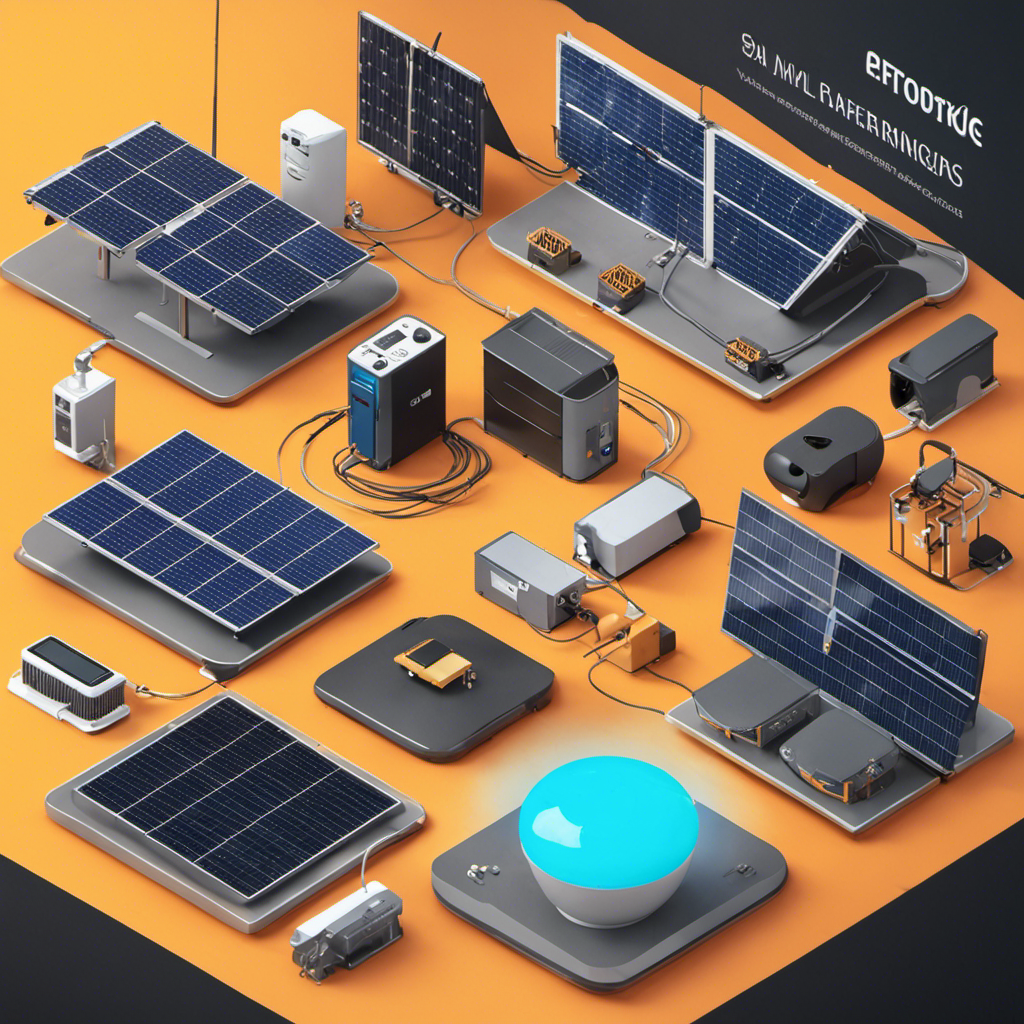
As someone who passionately backs renewable energy, I’m always on the lookout for methods to capture solar power. During my pursuit of understanding, I’ve discovered an abundance of insights regarding charging with solar light.
From alternatives to charging solar lights without direct sunlight to factors that impact panel efficiency, winter storage tips, and the many benefits of solar power, this article delves into every aspect of this fascinating subject.
Join me as we explore the world of solar light charging and discover how to maximize efficiency and maintain these eco-friendly devices.
Key Takeaways
- Artificial light, incandescent bulbs, or battery-operated lights can be used as alternatives to solar light charging without direct sunlight.
- Factors such as panel design, color, layout, and location can affect the efficiency of solar panels.
- Proper winter storage of solar lights is important to prevent damage from debris, water, and snow.
- Solar power is a cost-effective and sustainable solution for reducing electricity bills and promoting a cleaner environment.
Alternative Methods for Solar Light Charging
I can use artificial light or battery-operated lights as alternatives to charge my solar lights without direct sunlight. When faced with cloudy weather or the need for indoor charging options, these alternatives can come in handy.
Artificial light sources such as incandescent bulbs can be used to charge solar lights when direct sunlight is not available. LED lights can also be installed near the solar panel to provide illumination and charge the solar lights. Additionally, mirrors can be installed to reflect sunlight onto the solar panels, increasing their charging efficiency.
Factors Affecting Solar Panel Efficiency
Reducing the use of plastic film on panels can increase their efficiency.
The color of the solar panel’s protective backsheets can impact efficiency, with black backsheets absorbing more sunlight and decreasing efficiency.
Factors such as panel design, temperature threshold, cell type, positioning, and location can affect the efficiency of solar panels.
Monocrystalline solar panels have the highest efficiency, but they can suffer from low energy efficiency at high temperatures.
It is important to consider these factors when choosing and installing solar panels to maximize their efficiency.
The color of the panels, as well as their exposure to different temperatures, play a crucial role in determining their overall performance.
Winter Storage Tips for Solar Lights
To safely store my solar lights during the winter, I turn them off, remove the panels, and clean the lenses before putting them away. Proper storage techniques for solar lights during winter are crucial to protect them from cold weather damage.
Here are four important steps to follow:
-
Turn off the solar lights: This prevents any accidental activation and conserves battery life during storage.
-
Remove the panels: Detaching the panels ensures they won’t be exposed to harsh winter conditions that can cause damage.
-
Clean the lenses: Dust, dirt, and debris can accumulate on the lenses over time, reducing the lights’ efficiency. By cleaning them before storage, you maintain optimal performance.
-
Store in a dry location: Choose a place away from moisture and extreme temperature fluctuations to prevent any damage to the lights.
Benefits of Solar Power
Installing solar panels can significantly decrease electricity bills and provide a sustainable and environmentally friendly solution for reducing carbon footprint. Solar power is not only beneficial for individual households, but it also has great potential for businesses and developing countries.
For businesses, solar power can offer significant cost savings on energy bills, allowing companies to allocate resources to other areas of their operations. Additionally, solar power can enhance a company’s reputation by demonstrating a commitment to green practices and sustainability.
In developing countries, where access to electricity may be limited or unreliable, solar power can be a game-changer. It can provide a reliable source of energy for basic needs such as lighting, cooking, and powering small appliances. This can greatly improve the quality of life for individuals and communities, as well as support economic development.
Overall, solar power is a versatile and impactful solution that can benefit both businesses and communities in developing countries, offering a sustainable and reliable source of energy while reducing reliance on fossil fuels.
Essential Maintenance for Solar Lights
Regularly cleaning and maintaining my solar panels ensures that they perform optimally and efficiently. Here are four essential maintenance tips for solar lights:
-
Troubleshooting: If your solar lights are not working, check the connections and ensure they are securely plugged in. Inspect the solar panel for any damage or debris that may be obstructing sunlight. If necessary, clean the panel with a soft cloth and mild detergent.
-
Battery Replacement: Over time, solar light batteries may lose their capacity to hold a charge. If your lights are not staying on for long periods, it may be time to replace the battery. Refer to the manufacturer’s instructions for the correct battery type and replacement procedure.
-
Cleaning: Regularly clean the solar panels to remove dirt, dust, and debris that can decrease their efficiency. Use a soft cloth or sponge and a mild detergent to gently clean the surface of the panels.
-
Protection from Extreme Weather: Extreme weather conditions such as heavy rain, snow, or extreme temperatures can damage solar lights. Ensure that the lights are installed securely and protected from these conditions to prolong their lifespan.
Exploring Alternative Charging Options
When exploring alternative options for charging my solar lights, I found that using LED lights near the solar panel can provide illumination and charge the lights. This method enhances the performance of the solar panel by providing a direct source of light that can be converted into energy. LED lights are energy-efficient and can produce a bright and focused beam of light, making them ideal for indoor charging options. By positioning the LED lights strategically near the solar panel, the light can directly hit the solar cells, maximizing the charging efficiency. To further illustrate this concept, consider the following table:
| Solar Panel Position | LED Light Position | Charging Efficiency |
|---|---|---|
| Above the solar panel | Below the solar panel | High |
| Beside the solar panel | Diagonally opposite to the solar panel | Medium |
| Below the solar panel | Above the solar panel | Low |
Maximizing Efficiency: Tips for Solar Panel Optimization
To maximize the performance of my solar panels, I adjusted their positioning according to the angle of the sun and ensured they were free from any obstructions.
Here are some tips for optimizing the angle of solar panels:
-
Tilt the panels towards the sun: Adjusting the tilt angle of the solar panels can maximize their exposure to sunlight throughout the day. A general rule of thumb is to set the tilt angle equal to the latitude of your location.
-
Clean the panels regularly: Dust, dirt, and debris can accumulate on the surface of solar panels, reducing their efficiency. Cleaning the panels with water and a non-abrasive sponge can help maintain optimal performance.
-
Check for shading: Obstructions such as trees, buildings, or nearby structures can cast shadows on the solar panels, significantly reducing their energy output. Regularly inspect the area surrounding the panels and trim any overhanging branches or remove obstructions.
-
Monitor the performance: Keep track of the energy production of your solar panels to identify any potential issues or deviations from expected performance. This can help you identify and address any problems promptly.
Winterizing Your Solar Lights: Storage and Maintenance
During the winter months, I ensure that my solar lights are stored safely and protected from debris, water, and snow. Winterizing tips for protecting solar lights include turning them off and removing the panels before storage. It is important to clean the lenses before storing them as well.
Adjusting the positioning of the solar panels according to winter conditions is crucial to ensure optimal performance. Cold weather can affect the life and performance of solar lights, so proper care is necessary. By following these winterizing tips, you can protect your solar lights and extend their lifespan.
Remember to store them in a safe place, away from any potential damage. Taking these precautions will ensure that your solar lights are ready to shine bright when the winter months are over.
Harnessing the Power of the Sun: Advantages of Solar Energy
I believe that harnessing the power of the sun through solar energy offers numerous advantages for both the environment and my wallet.
-
Solar energy applications: Solar power can be used for a variety of applications, including generating electricity, heating water, and powering vehicles. It is a versatile and sustainable source of energy that can be utilized in both residential and commercial settings.
-
Solar power in developing countries: Solar energy is especially beneficial for developing countries that may not have access to reliable electricity grids. By installing solar panels, these countries can generate their own electricity, improving the quality of life for their citizens and promoting economic development.
-
Environmental advantages: Solar energy is a clean and renewable source of power. It produces no greenhouse gas emissions or air pollutants, helping to combat climate change and improve air quality. By reducing dependence on fossil fuels, solar power also helps to conserve natural resources and protect ecosystems.
-
Financial benefits: Investing in solar energy can lead to long-term cost savings. While the initial installation costs may be higher, solar panels have a lifespan of 25 to 30 years and require minimal maintenance. By generating your own electricity, you can reduce or eliminate your monthly energy bills, saving money in the long run. Additionally, some governments offer incentives and tax credits for installing solar panels, further reducing the financial burden.
Caring for Your Solar Lights: Maintenance and Longevity Tips
Regularly cleaning and maintaining my solar panels is crucial to ensuring their optimal performance and longevity.
Solar light troubleshooting is an essential part of preventative maintenance for solar lights. One common issue with solar lights is a decrease in brightness or complete failure to illuminate. This can be caused by a dirty solar panel, which blocks sunlight from reaching the battery and inhibits charging.
To troubleshoot this issue, I need to clean the solar panel using a soft cloth and mild detergent. Additionally, I should check for any loose or damaged connections and replace any faulty components. It is also important to inspect the battery and replace it if necessary.
Frequently Asked Questions
Can Solar Lights Be Charged Using Indoor Artificial Light Sources?
Yes, solar lights can be charged using indoor artificial light sources. However, it is important to note that the optimal charging conditions for solar lights are direct sunlight. Indoor lighting may not provide the same level of intensity as sunlight, which can affect the charging efficiency.
To maximize charging, it is recommended to place the solar lights close to the light source and ensure that there are no obstructions blocking the light from reaching the solar panels.
How Can Mirrors Be Used to Increase the Charging Efficiency of Solar Panels?
Mirrors can be strategically placed in solar panels to enhance their charging efficiency. By reflecting sunlight onto the panels, mirrors help maximize the absorption of solar energy, resulting in increased power generation.
This reflective surface technology is a clever way to optimize solar charging and make the most of available sunlight. Incorporating mirrors into solar panel designs is a technical approach that enhances the overall performance and efficiency of the solar system.
Are There Any Specific Precautions to Take When Storing Solar Lights During Winter?
When storing solar lights during winter, there are some precautions to take.
First, turn off the solar lights and remove the panels before storing them. It’s important to clean the lenses and adjust the positioning of the panels according to winter conditions. This will ensure optimal performance.
Additionally, cold weather can affect the life and performance of solar lights, so proper care is necessary.
What Are Some Additional Benefits of Using Solar Power Besides Cost Savings?
Using solar power has numerous advantages beyond just cost savings.
One of the main benefits is the positive environmental impact it has. By harnessing the power of the sun, we can reduce our dependence on fossil fuels and lower our carbon footprint. Solar power is a sustainable and renewable energy source that helps promote a cleaner and greener environment.
Additionally, installing solar panels allows us to take advantage of the abundant sunlight, providing us with a reliable source of energy.
Are There Any Specific Maintenance Tips for Solar Lights in Extreme Weather Conditions?
In extreme weather conditions, proper maintenance of solar lights is crucial. Here are some maintenance tips and winter storage precautions:
1) Clean and inspect the solar panels regularly to ensure optimal performance.
2) Check for any obstructions that may block sunlight.
3) Replace damaged components promptly.
4) Store solar lights safely during winter, removing panels and adjusting positioning accordingly.
5) Keep lights away from extreme weather to prevent damage.
Following these tips will help prolong the life and performance of your solar lights.
Conclusion
In conclusion, solar light charging provides a sustainable and efficient solution for illuminating our surroundings. By utilizing alternative methods such as artificial light sources or LED installations, we can ensure that our solar lights are charged even in the absence of direct sunlight.
Understanding the factors that affect solar panel efficiency, such as panel design and temperature, allows us to maximize the energy conversion process. Proper winter storage techniques, like turning off the lights and adjusting panel positioning, safeguard our solar lights from damage.
With solar power, we can enjoy cost savings, reduce our carbon footprint, and contribute to a cleaner environment. Regular maintenance, including cleaning panels and checking for obstructions, is essential for optimal performance.
Now, here’s an interesting statistic: Did you know that monocrystalline solar panels, known for their high efficiency, can convert up to 22% of solar energy into usable electricity? Just imagine the power of harnessing the sun’s energy and transforming it into bright, sustainable light.
So, let’s continue caring for our solar lights, maximizing their efficiency, and embracing the advantages of solar energy for a brighter and greener future.
-
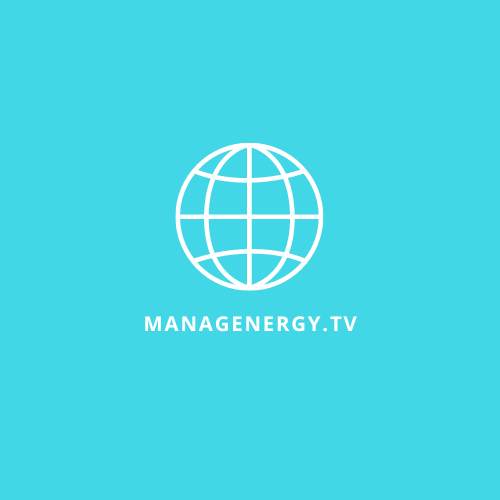
 Sustainable Supply Chain Management2 months ago
Sustainable Supply Chain Management2 months agoManagEnergy Acquires GPST2030.org Domain to Strengthen Commitment to Sustainable Transport
-

 Wind Energy2 months ago
Wind Energy2 months agoHow Much Oil Does It Take To Lubricate A Wind Turbine
-

 Electric Motorbike2 weeks ago
Electric Motorbike2 weeks agoCalifornia Electric Motorcycle Laws: A Comprehensive Guide to Riding Safely
-
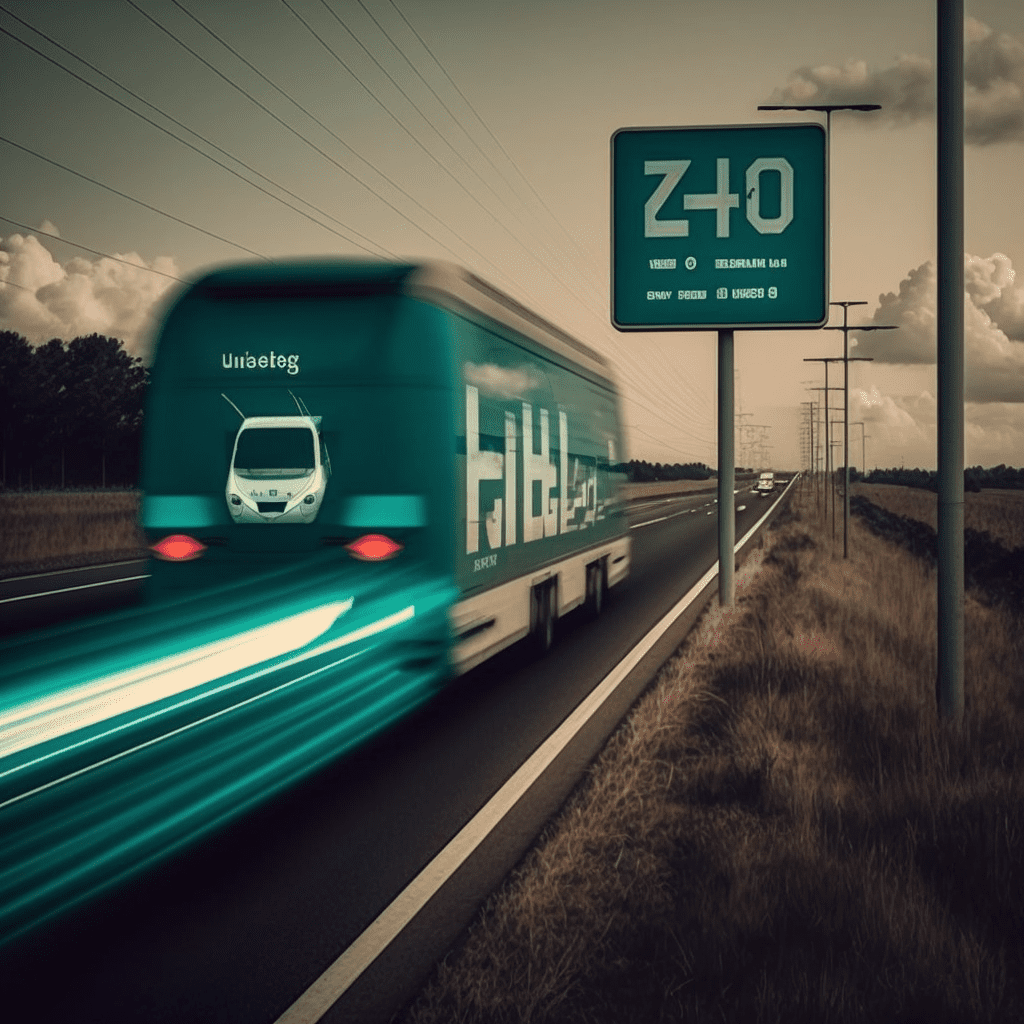
 Electricity Vehicle3 weeks ago
Electricity Vehicle3 weeks agoThe Future of Electric Vehicles: Trends and Innovations to Watch
-
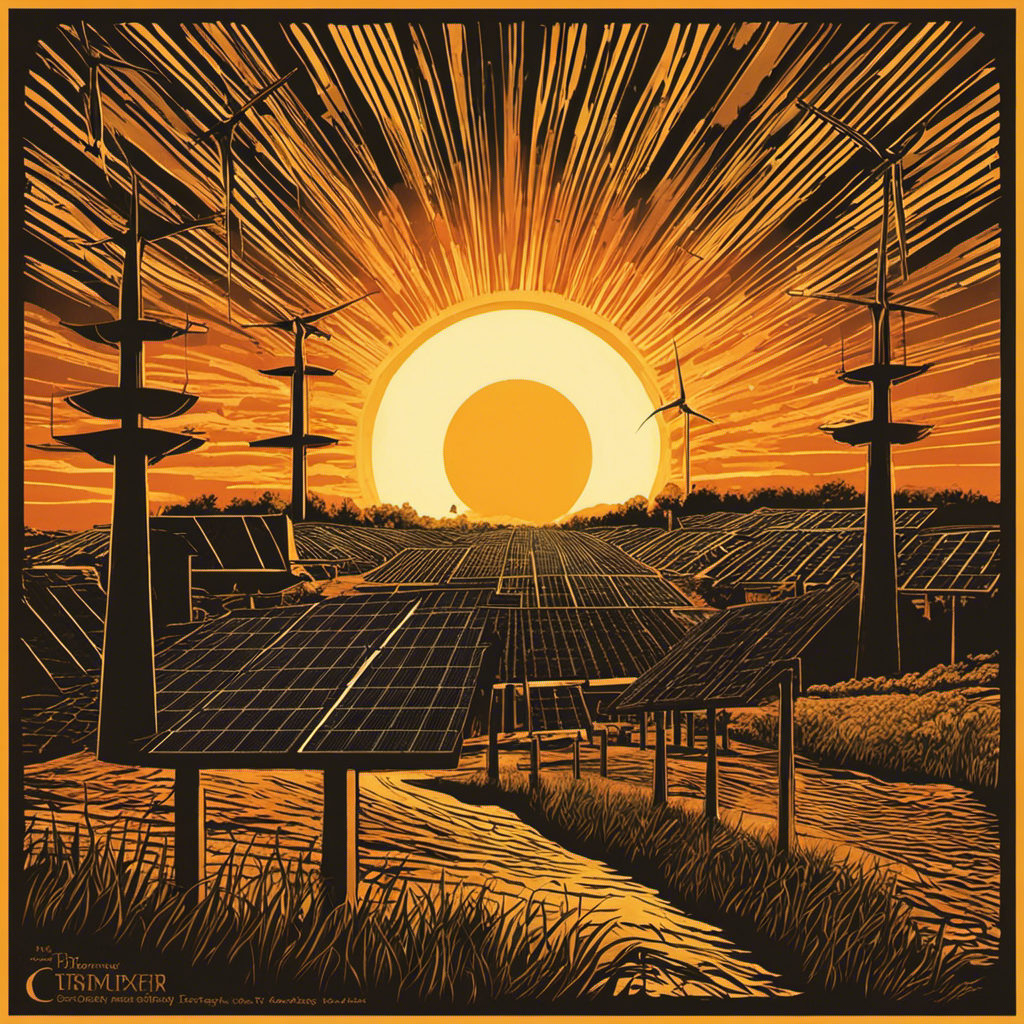
 Solar2 months ago
Solar2 months agoIn 2009, About What Percent Of U.S. Energy Consumption Was Supplied By Solar Energy
-

 Wind Energy3 weeks ago
Wind Energy3 weeks agoEnvironmental Innovation Turned Deadly: Ocean Wind Turbines Pose Threat to Whales’ Survival
-

 Wind Energy2 weeks ago
Wind Energy2 weeks agoRevolutionizing Highways: Wind Turbines Take the Road to Renewable Energy
-
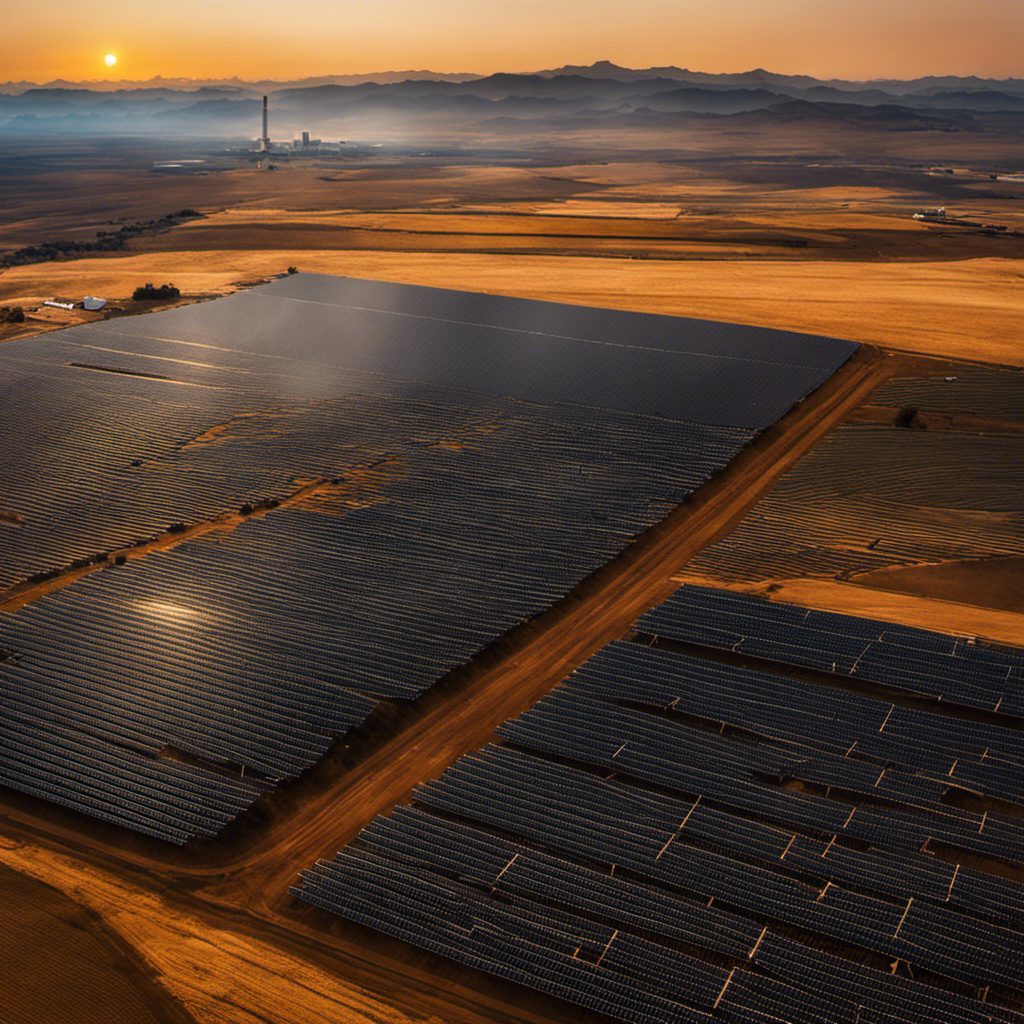
 Solar2 months ago
Solar2 months agoWhy Should We Use Solar Energy Instead Of Fossil Fuels
